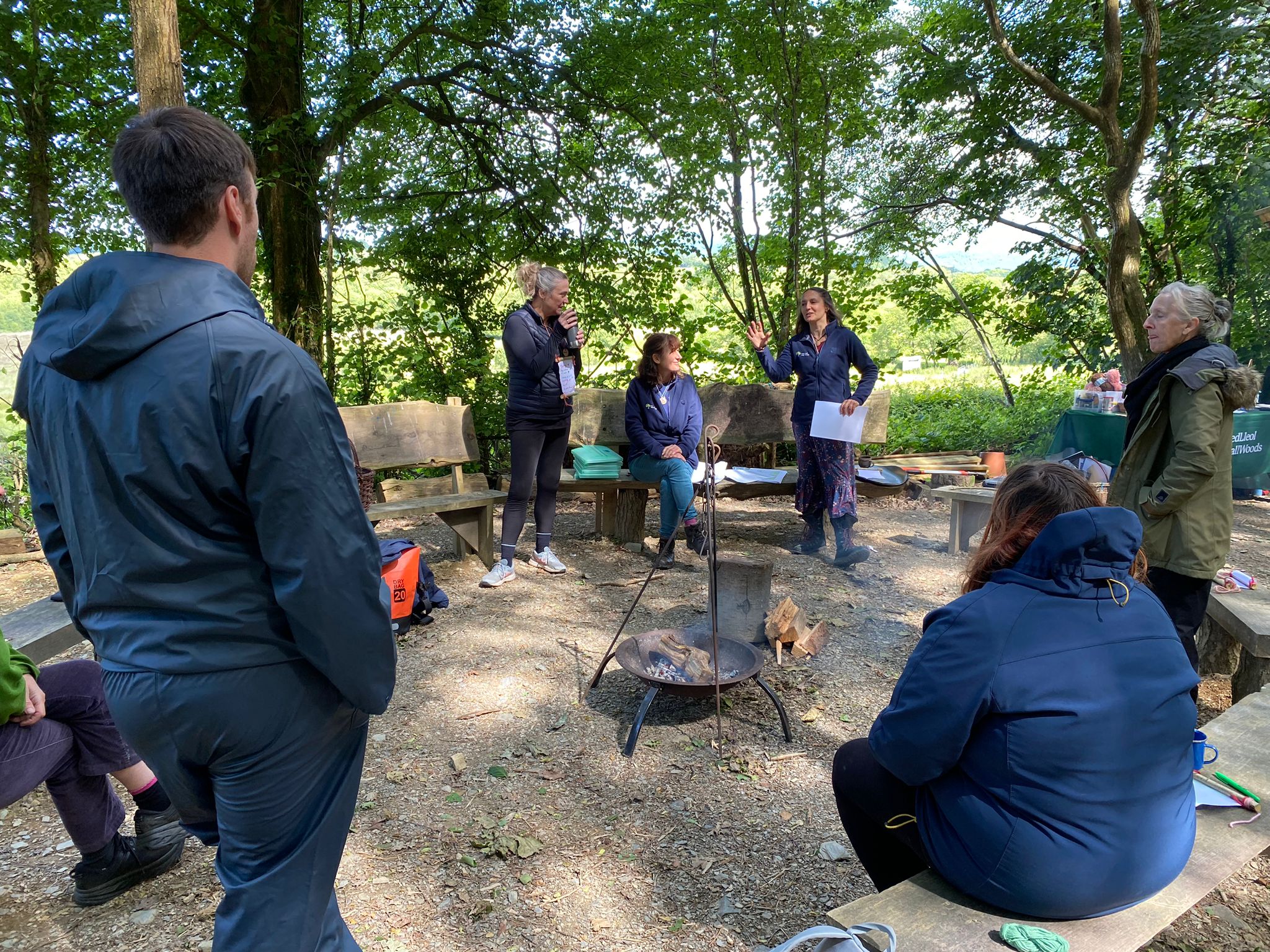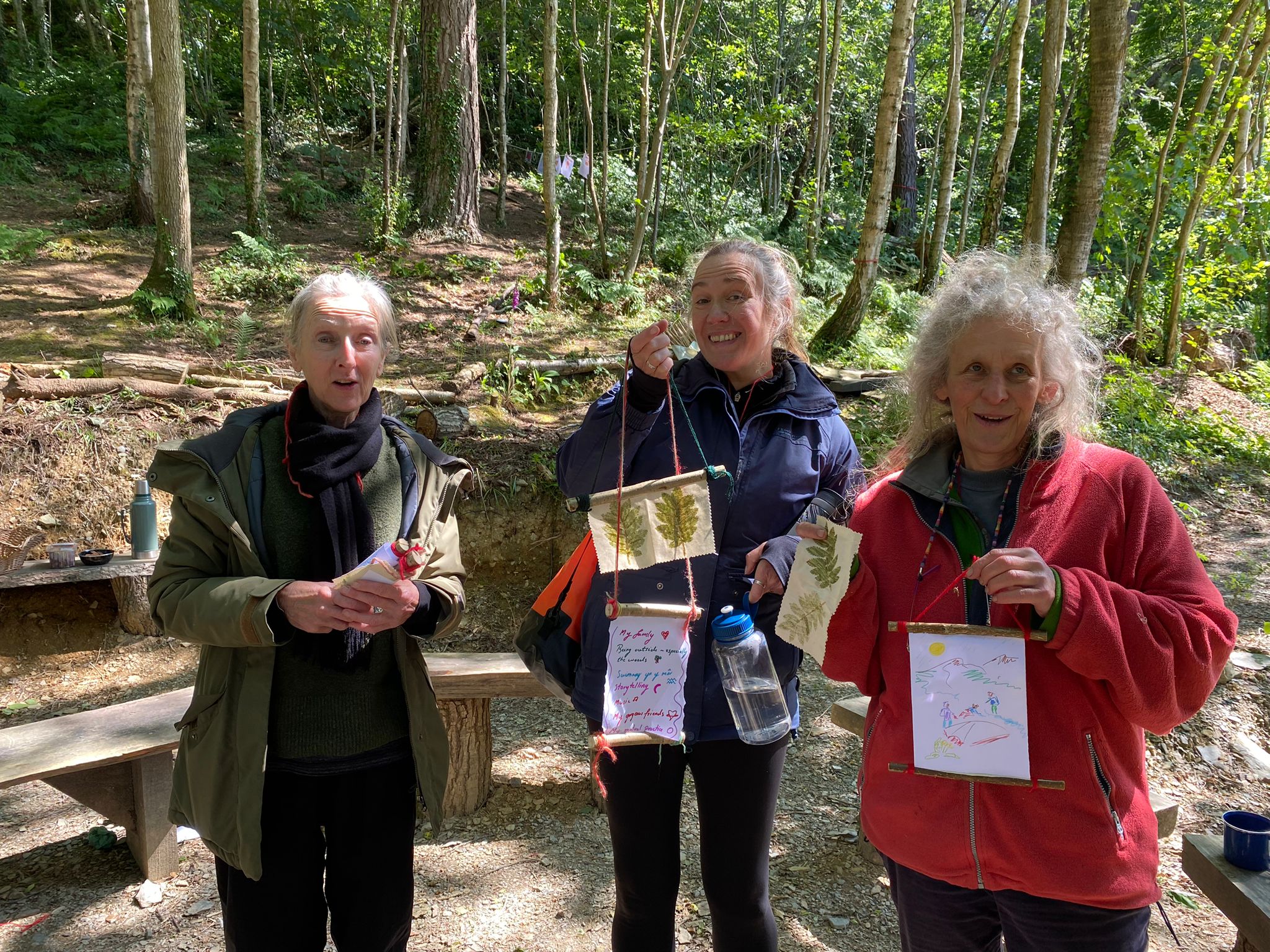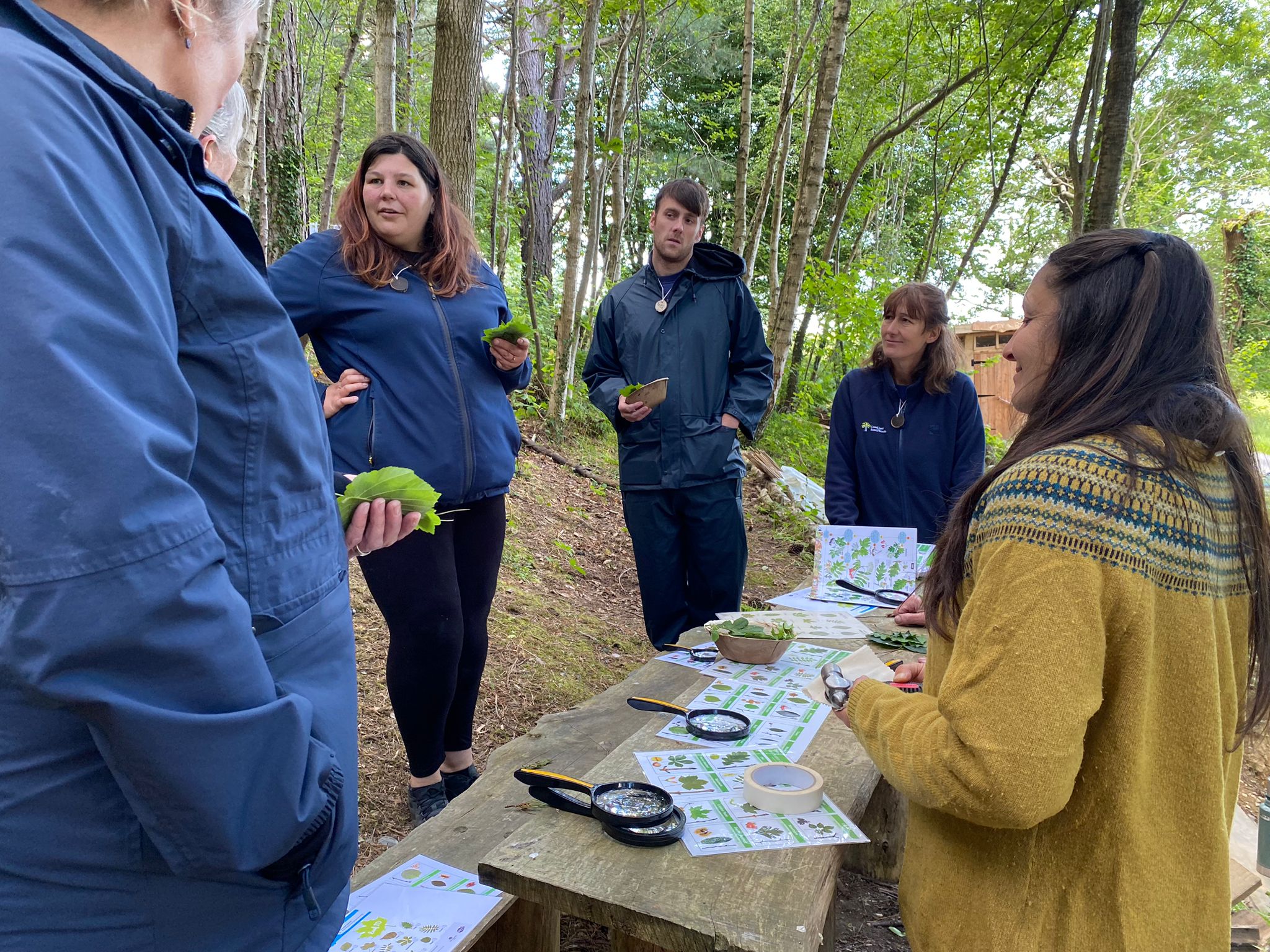
We recently caught up with a Jessie from Ceredigion Council who completed the Level 2 Supporting Wellbeing in Nature (WIN) course. As a support worker who runs a day centre for adults with learning difficulties, she shared how the course not only enriched her professional practice but also brought personal renewal.
How was the Level 2 Supporting WIN course?
It was really lovely. I’d done the forest school leaders training many years ago, so I think I knew what to expect a little more than some of the other participants. It felt very nurturing. The instructors gave us a lot of space to explore, talk and really understand what WIN is all about.
How long did the Level 2 course last? How many days?
We had two days in the woods at Taliesin, and then a self-study workbook to complete afterwards in your own time. That was nice because you could reflect and think about what you’ve done. We took lots of notes and photos when we were there in the forest, and it was nice, personal time as well. Time to reflect on it all.
And how did it affect your own personal well-being?
I loved it! I’d happily be in the woods all day anyway, but I think it just gave me that real sense of calm and it boosts your creativity as well – thinking of different ways to deliver something. Being in a different space from my usual day centre helped shift my perspective.
How have you used what you learned in your day job?
We’ve got a lovely garden at the centre, and we were lucky to get some equipment to set up our own little nature space. I delivered six sessions based on the WIN model.
It’s become a calming space to dip in and out of – just sitting and listening/ looking for a bit. It’s very calming for some of our guys that come to the day centre. Some of them don’t always access the outdoors, so that’s been the biggest impact for us as a centre is to be able to sprinkle it into their day, which is really important.
Did you notice a positive impact on your service users?
Definitely. Just sitting quietly and listening is alien to some, but they’d say, “this is nice” and “this is something I could do myself”. It’s empowering and accessible even for those with physical disabilities. Just sitting under a tree, looking at the leaves and noticing the patterns. The communication of that was really nice. We encouraged them to find something they really love outside and talk about how it felt and how it looked. It was something new for a lot of them, which I think was great.
What’s your role at Ceredigion?
I’m a project worker at Canolfan Meugan, a day centre for adults with learning disabilities. I’m between support worker and management, so I deal with day-to-day management of the centre and I’m responsible for putting together risk assessments and plans for any new projects that we do here, like WIN. It’s a fluid role so I work closely with the service users too.
How did WIN compare to previous courses you’ve been on?
It was similar in some ways to Forest school training which I did a long time ago with early years school children. But, in terms of the leader role it was a little bit more defined.
Whereas forest school was more education based, WIN is more about general wellbeing than necessarily learning about the plants and the trees, and I really liked that aspect. I think we can run into the danger of over-educating just for the sake of it.
There’s nothing wrong with just enjoying something, like a tree. It doesn’t matter if you know what species it is because well-being isn’t really about that, it’s about your general sense of happiness, peace and calm. So, I like that that side of the WIN course a lot.
Would you be interested in going on to do the Level 3 WIN Practitioner course? Would you say that Level 2 is a good introduction?
Yes, it certainly would be something I’d be interested in doing. I think going straight into Level 3 WIN Practitioner is perfectly doable as well. I do feel like because I’ve got the forest school leaders qualification, I might not need to do the Practitioner course, but I would really enjoy it, and it makes sense especially with the diversion from education to wellbeing.
How did you find the instructors?
They were great. They were quite fluid in that they would be hands on when necessary and then take a step back to let you explore. And again, that could be quite alien for some people. But for me it worked really well because it could just to remind myself what it was all about. And I refreshed my love of being in that environment and understanding how important it is.
Is there anything else that you want to share about your experience?
This course isn’t just for you to deliver to other people; it’s something for you as well. You get so much out of it, being a leader or a supporter, that you can then offer to others. I would say it’s an important course to explore both for your own practise as well as what you can give to others.
Others from different centres found it quite enlightening and it opened up a field for them that they hadn’t really thought of before. One person went from not knowing what an oak leaf was to loving the forest. We had this amazing time and I was running around enjoying the leaves. It’s really lovely to see what it can open up for people.
Final thoughts?
Some see wellbeing in nature as “woo woo,” but when you’re out there and actually doing it, you realize we’re fundamentally connected to nature. We have lost touch with that. We almost severed ourselves from it. It’s not new—it’s a return.
If it was me, I would have every school and everyday centre and every residential home in a forest. Well-being in nature should be normal.

If you want to join a Wellbeing in Nature course, look at our upcoming courses and contact one of our providers directly
